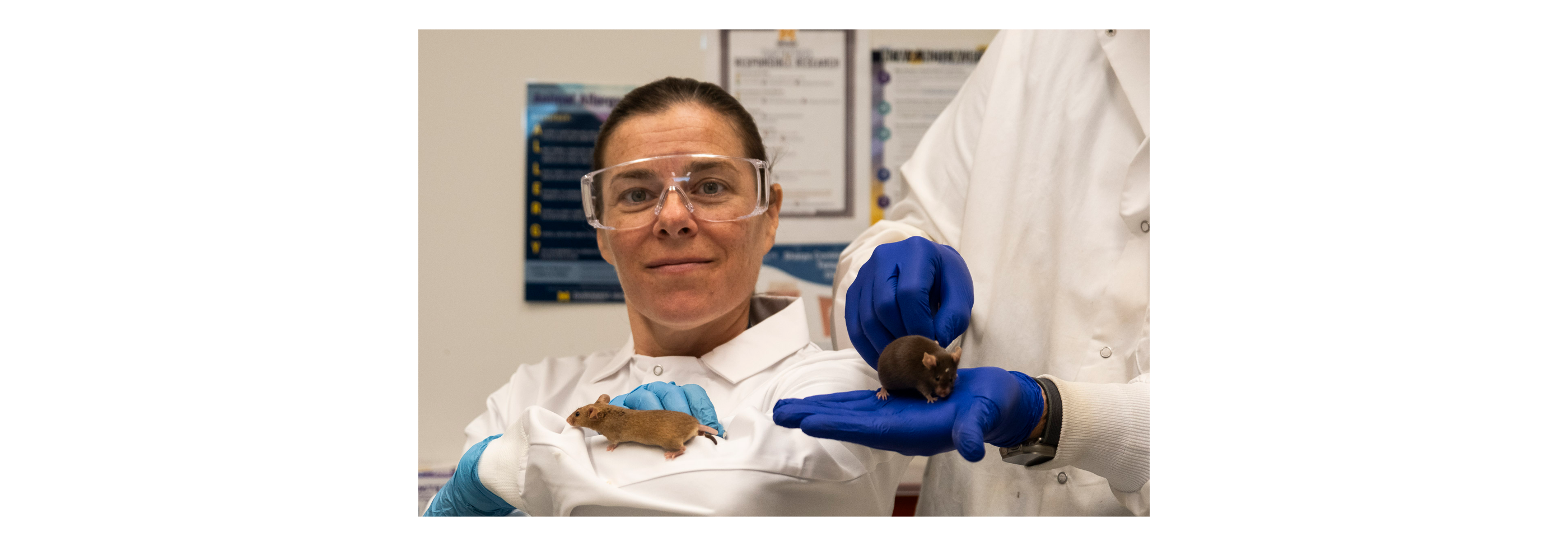
Overview
Project 4 aims to discover drugs that can slow aging and extend lifespan by postponing age-dependent changes that impair health. The chemoinformatics group (Girke team) develops new strategies for identifying drugs and targets likely to slow aging. The Miller lab group evaluates effects of drugs in mice, using molecular tests (“aging rate indicators,” or ARI) that discriminate normal from slow-aging mice. The provisional ARI test battery is being refined and validated using tissue samples from 40 varieties of drug-treated mice, some of which show increased healthy lifespan. Experiments are under way to learn how long it takes for ARI values to respond to authenticated anti-aging drugs, and to test the ability of drugs chosen by chemoinformatics to alter ARIs. A lifespan experiment is testing the ability of ARIs and metabolomic features to predict lifespan in individual, untreated, normal, mice, and a parallel cohort is detecting ARIs that predict future performance on tests of physical and cognitive health. Collaborative studies testing ARIs in blood samples from dogs and from middle-aged and older people are included in the research plan. Anticipated outcomes include (a) a list of candidate geroprotectors that deserve testing in mouse lifespan protocols and in human and mouse disease models; (b) optimized in silico methods for nominating promising anti-aging drugs; (c) a validated test battery that can be used in future work for short-term assessment of proposed geroprotectors in mice; and (d) initial attempts to translate the mouse findings for research on a second mammalian model (dogs), and in humans.

Co-Leads
University of Michigan
Richard A. Miller received his MD and PhD from Yale in 1977, did postdoctoral work at Harvard and Sloan-Kettering, joined the Pathology faculty at Boston University in 1982, and moved to the University of Michigan in 1990. He is the Director of the UM Glenn Center for Research on the Biology of Aging, and the UM component of the NIA Interventions Testing Program. His lab group works on mechanisms of aging in mice.
UC Riverside
Thomas Girke is a Professor of Bioinformatics at the Institute for Integrative Genome Biology at the University of California, Riverside (UCR). He holds positions as Director of the High-Performance Computing Center (HPCC) and Director of the Graduate Program in Genetics, Genomics and Bioinformatics (GGB). His research interests are in the areas of cheminformatics and bioinformatics, with a focus on both discovery and methodology development.
Other Key Personnel
University of Michigan
Dr. Catherine Kaczorowski is the Elinor Levine Endowed Professor of Neurology at Michigan. Dr. Kaczorowski is an expert in the systems genetics of aging and neurodegenerative diseases. She is a Butler-Williams Scholar and on the AFAR Board of Directors. She co-chairs the Steering Committee of the Data Management Coordinating Center for Exceptional Longevity, serves on the EAB of the Functional Genomics Consortium, and is UM Deputy Site Director for the Interventions Testing Program.
Tufts University
Dr. Promislow is a Senior Scientist at the Jean Mayer USDA Human Nutrition Research Center on Aging at Tufts University. He uses quantitative genetics and systems biology approaches to understand how genes and environment shape aging in natural populations. As PI of the Dog Aging Project, Dr. Promislow helps to lead a nationwide long-term longitudinal study on the biological and environmental determinants of healthy aging in tens of thousands of companion dogs.
